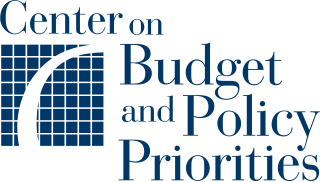A nonprofit organization (NPO), also known as a nonbusiness entity, nonprofit institution, or simply a nonprofit, is a legal entity organized and operated for a collective, public or social benefit, as opposed to an entity that operates as a business aiming to generate a profit for its owners. A nonprofit organization is subject to the non-distribution constraint: any revenues that exceed expenses must be committed to the organization's purpose, not taken by private parties. Depending on the local laws, charities are regularly organized as non-profits. A host of organizations may be nonprofit, including some political organizations, schools, hospitals, business associations, churches, foundations, social clubs, and consumer cooperatives. Nonprofit entities may seek approval from governments to be tax-exempt, and some may also qualify to receive tax-deductible contributions, but an entity may incorporate as a nonprofit entity without having tax-exempt status.
ChildFund, also known an ChildFund International, and formerly known as Christian Children's Fund, is a child-focused international development organization that provides assistance to children facing poverty and other challenges in 24 countries, including the United States. ChildFund's headquarters are located in Richmond, Virginia, United States.

Fundraising or fund-raising is the process of seeking and gathering voluntary financial contributions by engaging individuals, businesses, charitable foundations, or governmental agencies. Although fundraising typically refers to efforts to gather money for non-profit organizations, it is sometimes used to refer to the identification and solicitation of investors or other sources of capital for for-profit enterprises.
Breakthrough T1D is a type 1 diabetes (T1D) research and advocacy organization.
The American Diabetes Association (ADA) is a United States-based nonprofit that seeks to educate the public about diabetes and to help those affected by it through funding research to manage, cure and prevent diabetes, including type 1 diabetes, type 2 diabetes, gestational diabetes, and pre-diabetes. It is a network of 565,000 volunteers which includes 20,000 healthcare professionals and administration staff members.

The International Food Policy Research Institute (IFPRI) is an international research center focused on agriculture and food systems that provides research-based policy solutions to reduce poverty and end hunger and malnutrition throughout low- and middle-income countries in environmentally sustainable ways. For nearly 50 years, IFPRI has worked with policymakers, academics, nongovernmental organizations, the private sector, development practitioners, and others to carry out research, capacity strengthening, and policy communications on food systems, economic development, and poverty reduction.

Type 1 diabetes (T1D), formerly known as juvenile diabetes, is an autoimmune disease that occurs when pancreatic cells are destroyed by the body's immune system. In healthy persons, beta cells produce insulin. Insulin is a hormone required by the body to store and convert blood sugar into energy. T1D results in high blood sugar levels in the body prior to treatment. Common symptoms include frequent urination, increased thirst, increased hunger, weight loss, and other complications. Additional symptoms may include blurry vision, tiredness, and slow wound healing. While some cases take longer, symptoms usually appear within weeks or a few months.

Proposition 71 of 2004 is a law enacted by California voters to support stem cell research in the state. It was proposed by means of the initiative process and approved in the 2004 state elections on November 2. The Act amended both the Constitution of California and the Health and Safety Code.
Slowly evolving immune-mediated diabetes, or latent autoimmune diabetes in adults (LADA), is a form of diabetes that exhibits clinical features similar to both type 1 diabetes (T1D) and type 2 diabetes (T2D), and is sometimes referred to as type 1.5 diabetes. It is an autoimmune form of diabetes, similar to T1D, but patients with LADA often show insulin resistance, similar to T2D, and share some risk factors for the disease with T2D. Studies have shown that LADA patients have certain types of antibodies against the insulin-producing cells, and that these cells stop producing insulin more slowly than in T1D patients. Since many people develop the disease later in life, it is often misdiagnosed as type 2 diabetes.

The Center on Budget and Policy Priorities (CBPP) is a progressive American think tank that analyzes the impact of federal and state government budget policies. A 501(c)(3) nonprofit organization, the Center's stated mission is to "conduct research and analysis to help shape public debates over proposed budget and tax policies and to help ensure that policymakers consider the needs of low-income families and individuals in these debates."
The Alliance for Aging Research is a non-profit organization based in Washington, D.C., that promotes medical research to improve the human experience of aging. Founded in 1986 by Daniel Perry, the Alliance also advocates and implements health education for consumers and health professionals.

Diabetes Management Software refers to software tools that run on personal computers and personal digital assistants to help persons with Type 1 and Type 2 diabetes manage the data associated with:

Crossref is a nonprofit open digital infrastructure organization for the global scholarly research community. It is the largest digital object identifier (DOI) Registration Agency of the International DOI Foundation. It has 19,000 members from 150 countries representing publishers, libraries, research institutions, and funders and was launched in early 2000 as a cooperative effort among publishers to enable persistent cross-platform citation linking in online academic journals. As of July 2023, Crossref identifies and connects 150 million records of metadata about research objects made openly available for reuse without restriction. They facilitate an average of 1.1 billion DOI resolutions every month, and they see 1 billion queries of the metadata every month.
The Environmental Determinants of Diabetes in the Young is a longitudinal study examining the environmental causes of Type 1 diabetes (T1D), formerly known as juvenile diabetes. The study follows children at high genetic risk for T1D from birth to 15 years of age.

The Arthritis Foundation is a nonprofit organization addressing the needs of people living with arthritis in the United States.

The Coral Reef Alliance (CORAL) is an environmental non-profit, 501(c)(3) non-governmental organization based in Oakland, California that is dedicated to coral reef conservation. The organization was founded in 1994 by Stephen Colwell.
Candid is an information service specializing in reporting on U.S. nonprofit companies. In 2016, its database provided information on 2.5 million organizations. It is the product of the February 2019 merger of GuideStar with Foundation Center.
The Redstone Acceleration & Innovation Network (TRAIN) is an organization launched by FasterCures in 2004 established to create opportunities for medical research organizations to discuss and overcome research challenges that cut across all diseases. TRAIN brings together nonprofit disease research organizations to share information, as well as promote collaboration and innovation in disease research. Headed by FasterCures, TRAIN asserts that collaboration is crucial for efficient biomedical advancement. Participating researchers discuss successes, failures, and best practices that provide lessons learned and valuable ideas that could be scaled up to amplify productivity.
Sandler Foundation is a charitable foundation formed in 1991 with support from Herbert Sandler and Marion Sandler, co-CEOs of Golden West Financial Corporation and World Savings Bank. In 2006, the Sandlers made a contribution of $1.3 billion to the foundation, which was the second largest American charitable contribution of 2006. Sandler Foundation is a spend-down foundation as the Sandlers have signed The Giving Pledge. The Sandlers founded the nonprofit investigative news organization ProPublica.

Mark Atkinson is an American medical researcher best known for his contributions to research seeking to predict, prevent, and cure type 1 diabetes. He is the author of over 600 publications and is one of the world's most cited diabetes researchers.










